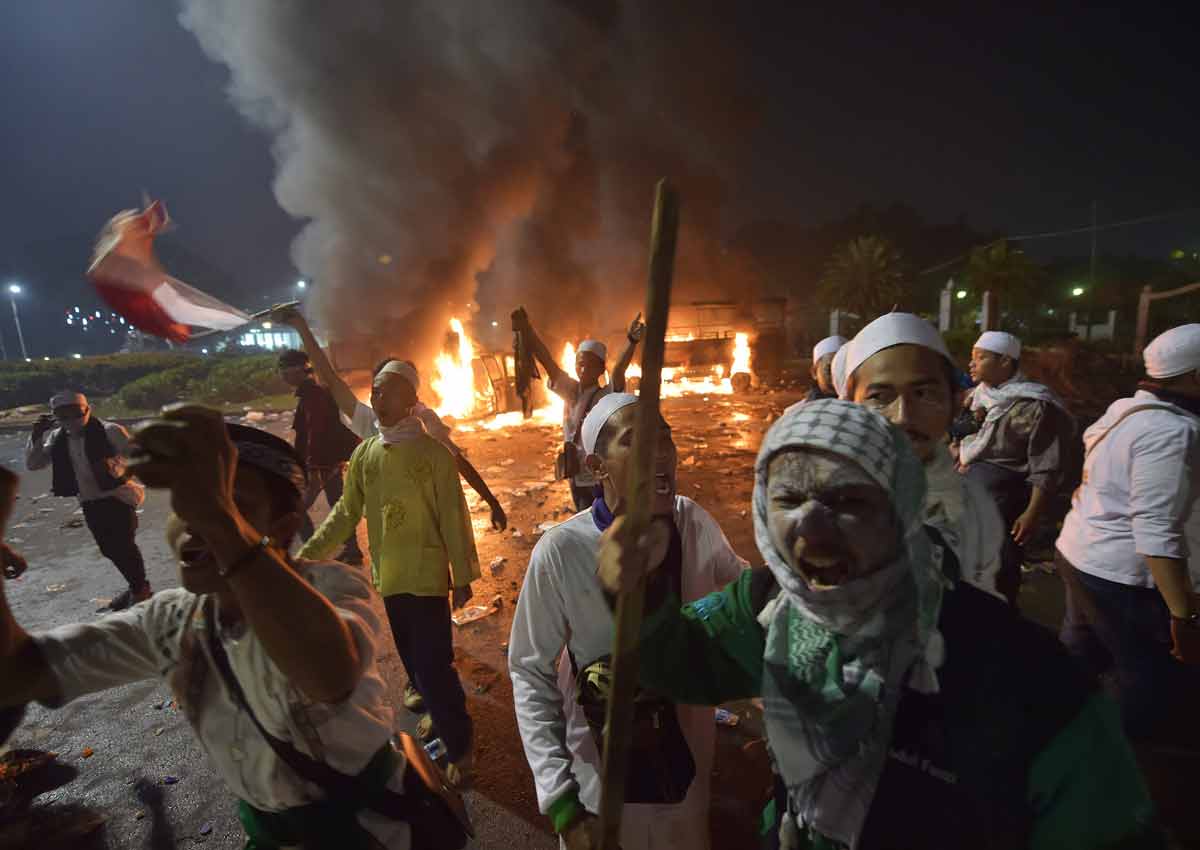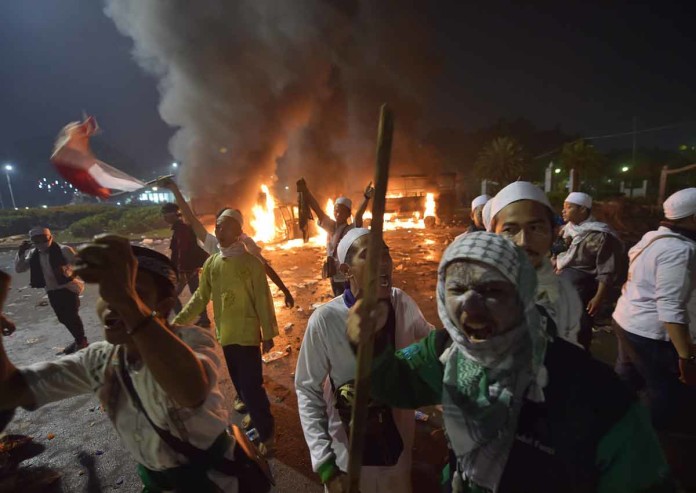The National Police have launched their investigation into President Joko “Jokowi” Widodo’s suspicions that political actors were behind the eruption into violence of a previously peaceful rally held by Muslim and youth organisations on Friday (Nov 4).
After effectively preventing the violence from escalating, the police have moved swiftly to respond to the President’s stern statement delivered in a furious tone, by Javanese standards, late on Friday, suggesting that political actors were taking advantage of the situation.
National Police spokesman Insp. Gen. Boy Rafli Amar confirmed the police’s move on Sunday, saying that the probe “was part of the ongoing investigation into the alleged provocateurs of the riot”.
“It is part of the information that the police are currently trying to confirm. The intelligence unit of the National Police is in charge of it,” Boy said on the sidelines of an event in Nusa Dua, Bali.
More than 100,000 protesters gathered in front of the Presidential Palace on Friday calling for the criminal prosecution of Jakarta Governor Basuki “Ahok” Tjahaja Purnama for alleged blasphemy.
The rally ended in violence as protesters defied a police order to disperse, and a small riot occurred later in Penjaringan district in North Jakarta, an area where many Chinese-Indonesians live.
The violence left one protester dead from complications related to chronic asthma and dozens injured, including a policeman who lost an eye while trying to control the hostile situation.
The Jakarta Police have released 10 protesters from detention for allegedly provoking the violence, but are yet to name any suspects.
However, the police have detained and declared 13 people suspects for allegedly instigating the riot in Penjaringan, and put 15 others on their wanted list.
While the authorities have not shed any light yet regarding specific political actors suspected of being behind the incidents, former president Susilo Bambang Yudhoyono’s Democratic Party, which holds less than 10 per cent of the seats in the House of Representatives, has already felt the heat.
The party’s executive Syariefuddin Hassan demanded on Saturday that Jokowi clarify his allegation as it could cause political instability.
“The President has to reveal the names that he alleges [were involved in the rally] in order to prevent suspicions among the public,” said Syariefuddin, former cooperatives and small and medium enterprises minister during Yudhoyono’s presidency.
Syariefuddin said Jokowi’s allegation was “very serious” and made in the middle of a “critical” situation. “Who knows? The political actors may have been those inside Jokowi’s political circle” he said.
Prior to the rally, Yudhoyono held a press conference to deliver his strong refutation of allegations that he orchestrated Friday’s rally leveled against him by the intelligence community.
He also complained about what he said was unjust treatment from the government toward him and his son Agus Harimurti Yudhoyono, and positioned himself as a victim of Agus’ bid to compete in the upcoming Jakarta gubernatorial race against Ahok – widely regarded as Jokowi’s “golden boy”.
No Democratic Party politicians or people close to Yudhoyono attended Friday’s rally. But several bigwigs, including House deputy speakers Fadli Zon of the Gerindra Party and Fahri Hamzah of the Prosperous Justice Party (PKS), were seen at the protest. National Mandate Party (PAN) patron Amien Rais also attended the rally.
Gerindra and PKS remain in opposition to Jokowi’s ruling coalition, which accounts for more than 70 per cent seats in the House, while PAN recently joined the Jokowi camp. The Democratic Party has thus far remained neutral.
Jokowi’s party, the Indonesian Democratic Party of Struggle (PDI-P), whose chairwoman Megawati Soekarnoputri reportedly holds a grudge against Yudhoyono, quickly defended the President’s move.
PDI-P deputy secretary-general Ahmad Basarah said it was best for political party elites to refrain from exploiting the situation to push their agendas at a time when Jakarta is preparing for a gubernatorial election.
“The election should be a chance to consolidate our democracy, not to allow anyone who wants to change the Pancasila (Indonesia’s philosophical foundation) with other ideologies,” said Basarah, who is also the spokesperson for Ahok’s election campaign team.






